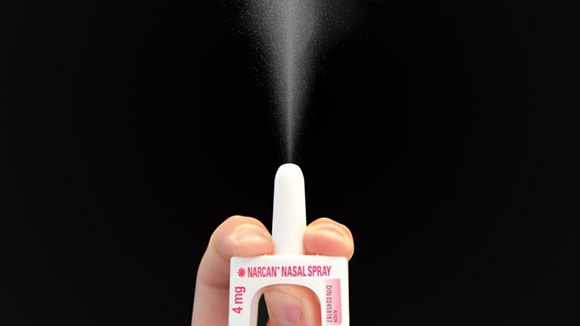Select language
Select language

Last year on Aug. 31, Overdose Awareness Day, CareOregon joined with Multnomah, Washington and Clackamas counties to announce a new effort to distribute overdose reversal drug Naloxone to community settings. CareOregon’s $3.9 million investment covered the costs of harm reduction kits that were distributed by the counties to organizations in their communities—making this lifesaving drug available at no cost to community members.
Between August 2022 and August 2023, more than 60,000 doses of Naloxone were distributed community partner organizations, including law enforcement, substance use disorder and mental health treatment facilities and other social services to combat the rise of overdose related deaths in the region.
Community partners have reported that access to Naloxone has prompted an effective overdose response.
Staff at City Central Concern, for example, have noted that in the six months prior to this distribution implementation (June – December 2022), Naloxone was administered by residents, staff or guests in 52% of reported known or suspected overdose events in their housing portfolio. In the six months since distribution (January – June 2023), that percentage has increased to 75%.
"Having accessible Naloxone on every floor of our housing complexes has already made an impact on overdose response within our housing portfolio,” said Juliana DePietro, Overdose Prevention Program Manager at Central City Concern. “It’s saving lives.
The program also included policy development and staff training at receiving organizations, so they would be prepared to use the medication.
“Having access to Naloxone is an essential part of keeping our patients and staff safe while they’re in our clinic and when they’re in the community,” said Kayla Carlson, Senior Manager of Clinical Operations at Fora Health.
“Naloxone is now easily accessible throughout our clinic, and we frequently train staff on it. Every patient who leaves our services receives a kit, and anyone who walks through our doors can take Naloxone home with them. Our goal is to create a space where patients feel supported and not stigmatized, and with the Naloxone donation we received, we have been able to accomplish that.”
Making Naloxone visible and accessible in communities is also critical to reducing stigma around drug use and overdose. Partners have noted that having Naloxone visible has prompted supportive conversations around drug use and overdose risk. These conversations can help to prevent drug use in isolation, a significant risk factor for fatal overdose.
Fentanyl-related overdose deaths in Oregon increased 600% between 2019 and 2021, according to a review of unintentional drug overdose and death certificate data by the Oregon Health Authority. The surge in fentanyl fatalities is driving overall overdose rates to the highest levels ever seen.
In response to the sharp increase in the number of overdose deaths over the past few years, CareOregon announced in 2022 a new partnership with Multnomah, Washington and Clackamas counties to urgently deliver thousands of doses of the overdose reversal drug Naloxone and other harm reduction supplies to community settings. The aim of the initial $3 million investment was to distribute 20,000 doses of nasal Naloxone and 20,000 of harm reduction kits—the program has since expanded to become a $3.9 million investment distributing more than 60,000 doses of Naloxone.
“No barrier access to Naloxone kits is lifesaving,” said Stacie Andoniadis, Substance Use Disorder Program manager for CareOregon. “They are going into the hands of the people who need it most. Accessibility changes the culture around Naloxone—more law enforcement and security teams are requesting it and more EMS leave it behind with patients. This is exactly what we need to reduce and prevent fatal overdoses.”
Website feedback
Help us improve our website
Having trouble finding what you’re looking for? Want to tell us about your website experience? Take our feedback survey and let us know!